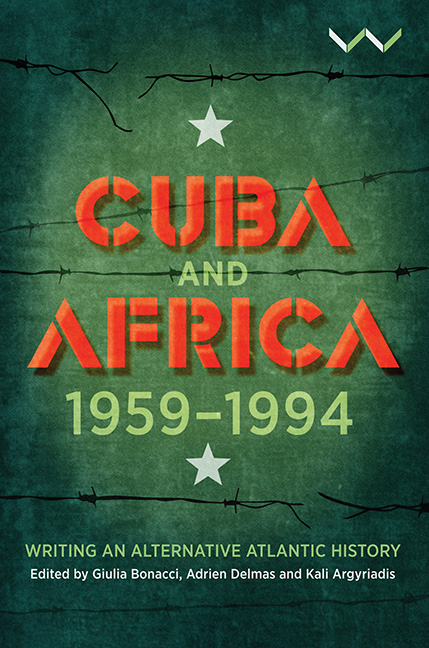Book contents
- Frontmatter
- Contents
- Figures and Table
- Foreword
- Acknowledgements
- Acronyms and Abbreviations
- Timeline of Historical Events
- Map of Africa, 1994
- Introduction Reconfiguring the Cuba–Africa Encounter
- Part I Politics and Solidarity
- Part II Trajectories
- Part III Voices
- Part IV Reconstructing History, Reconnecting Roots
- Contributors
- Index
Foreword
Published online by Cambridge University Press: 15 June 2021
- Frontmatter
- Contents
- Figures and Table
- Foreword
- Acknowledgements
- Acronyms and Abbreviations
- Timeline of Historical Events
- Map of Africa, 1994
- Introduction Reconfiguring the Cuba–Africa Encounter
- Part I Politics and Solidarity
- Part II Trajectories
- Part III Voices
- Part IV Reconstructing History, Reconnecting Roots
- Contributors
- Index
Summary
In the early 2000s I had the fortune to travel regularly to wonderful places, like Timbuktu, for instance, on the banks of the Niger River in the north of the Republic of Mali. As it was rather isolated at this time, without any road connecting it to a large city and with only irregular flights in and out of the place, many of the locals knew in no time who had newly arrived in town. At that time, it was relatively safe to travel overland in those parts. Adventurous tourists arrived for a quick visit and ticked it off their wish lists. Whenever a fresh load of travellers arrived, kids would rush to the hotels to take the newcomers around. After sunset we would go for long strolls around the dimly lit town.
Since I was a fairly regular visitor to the town, my friends had to find new attractions to show me. On two separate occasions they took me and my fellow travellers to meet two recently arrived people – not tourists but residents – a man and a woman. They were from Cuba and were medical doctors serving at the local hospital, where they had a scheduled two-year stay. I had often wondered what the state hospital close to the Sankoré mosque might look like on the inside, but I never ventured there. The two doctors from the Caribbean island, however, knew all about it. Apart from Spanish the doctors probably spoke some French, but that was not going to take them very far with their patients. They would have had translators with them but they also picked up a smattering of the local Songhai language, at least so it seemed from the banter they were engaged in at the makeshift restaurant where we met. As the ancient radio on the counter played wonderful Malian music non-stop in the background, the doctors appeared totally at home speaking Spanish-accented French and Songhai – peppered with well-known Arabic phrases – with the locals in the rather ramshackle eating-drinking-meeting place. They were only two of the far larger number of Cuban doctors in Mali and, indeed, in many other parts of the continent. Cuban relations with African countries did not rest on short-term economic interest or longer-term political gain.
- Type
- Chapter
- Information
- Cuba and Africa, 1959-1994Writing an Alternative Atlantic History, pp. ix - xiiPublisher: Wits University PressPrint publication year: 2020

